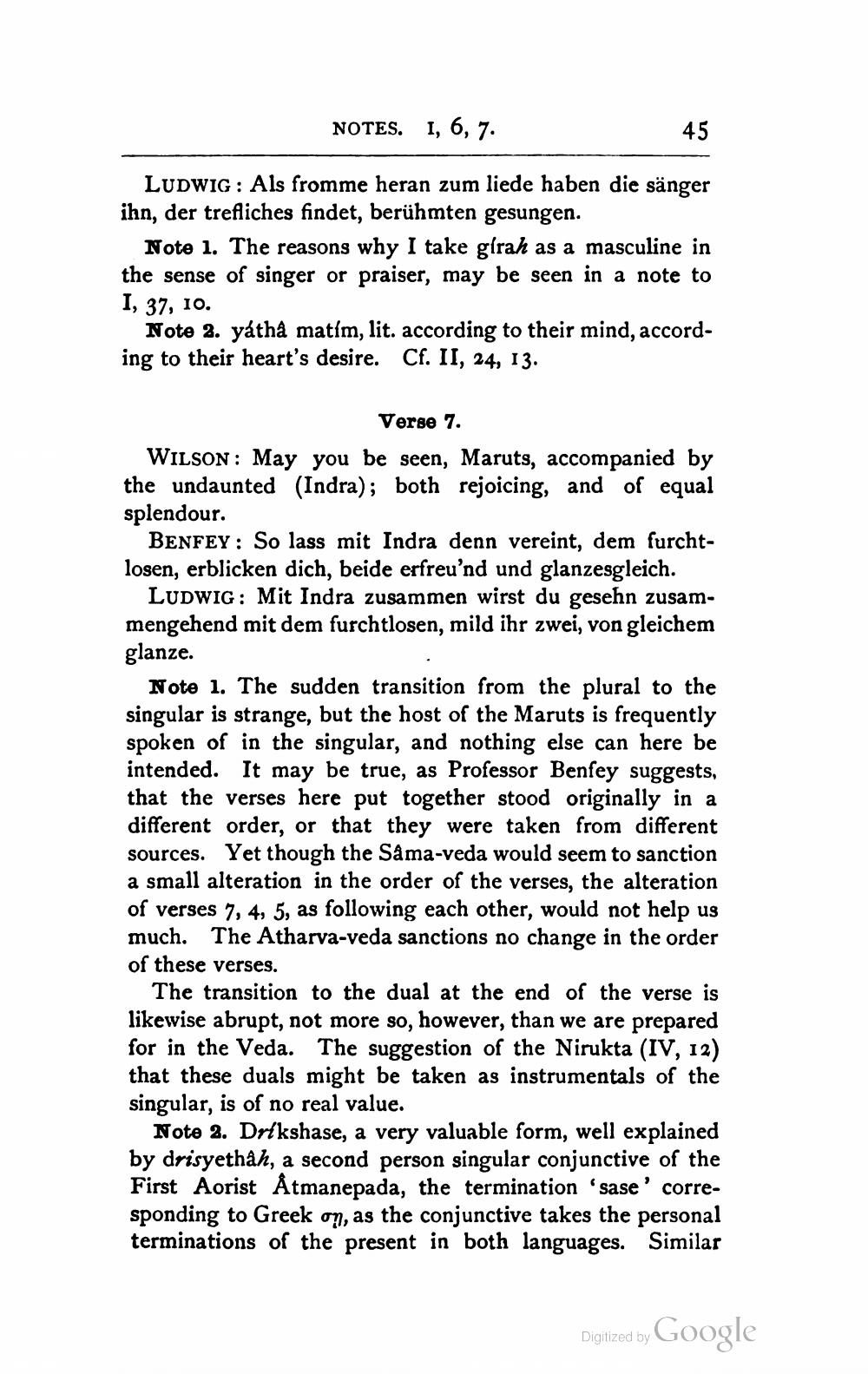________________
NOTES. 1, 6, 7.
45
:
LUDWIG Als fromme heran zum liede haben die sänger ihn, der trefliches findet, berühmten gesungen.
Note 1. The reasons why I take gírah as a masculine in the sense of singer or praiser, may be seen in a note to I, 37, 10.
Note 2. yáthâ matím, lit. according to their mind, according to their heart's desire. Cf. II, 24, 13.
Verse 7.
WILSON: May you be seen, Maruts, accompanied by the undaunted (Indra); both rejoicing, and of equal splendour.
BENFEY: So lass mit Indra denn vereint, dem furchtlosen, erblicken dich, beide erfreu'nd und glanzesgleich.
LUDWIG: Mit Indra zusammen wirst du gesehn zusammengehend mit dem furchtlosen, mild ihr zwei, von gleichem glanze.
Note 1. The sudden transition from the plural to the singular is strange, but the host of the Maruts is frequently spoken of in the singular, and nothing else can here be intended. It may be true, as Professor Benfey suggests, that the verses here put together stood originally in a different order, or that they were taken from different sources. Yet though the Sâma-veda would seem to sanction a small alteration in the order of the verses, the alteration of verses 7, 4, 5, as following each other, would not help us much. The Atharva-veda sanctions no change in the order of these verses.
The transition to the dual at the end of the verse is likewise abrupt, not more so, however, than we are prepared for in the Veda. The suggestion of the Nirukta (IV, 12) that these duals might be taken as instrumentals of the singular, is of no real value.
Note 2. Drikshase, a very valuable form, well explained by drisyethâh, a second person singular conjunctive of the First Aorist Åtmanepada, the termination 'sase' corresponding to Greek on, as the conjunctive takes the personal terminations of the present in both languages. Similar
Digitized by Google




